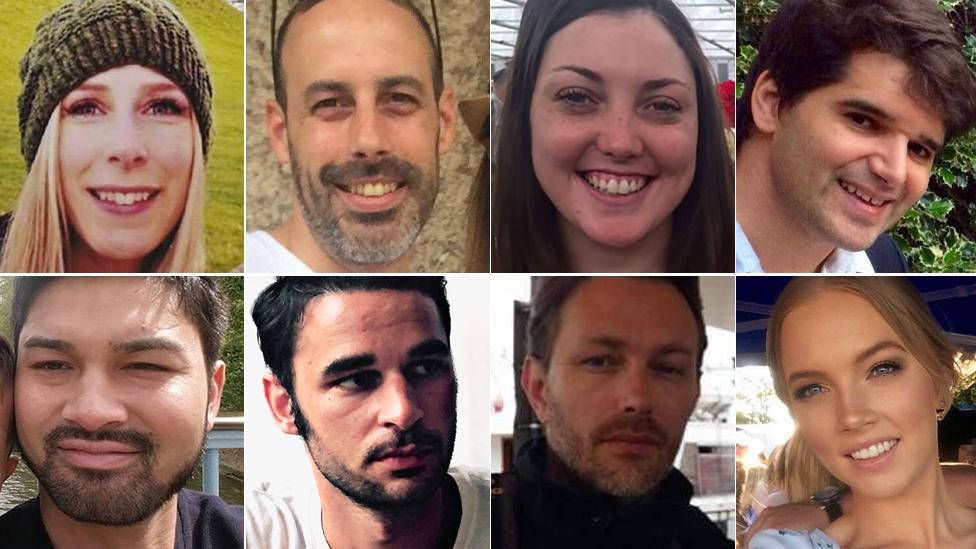London Bridge inquests: Chances 'galore' to stop attack, says lawyer
- Published
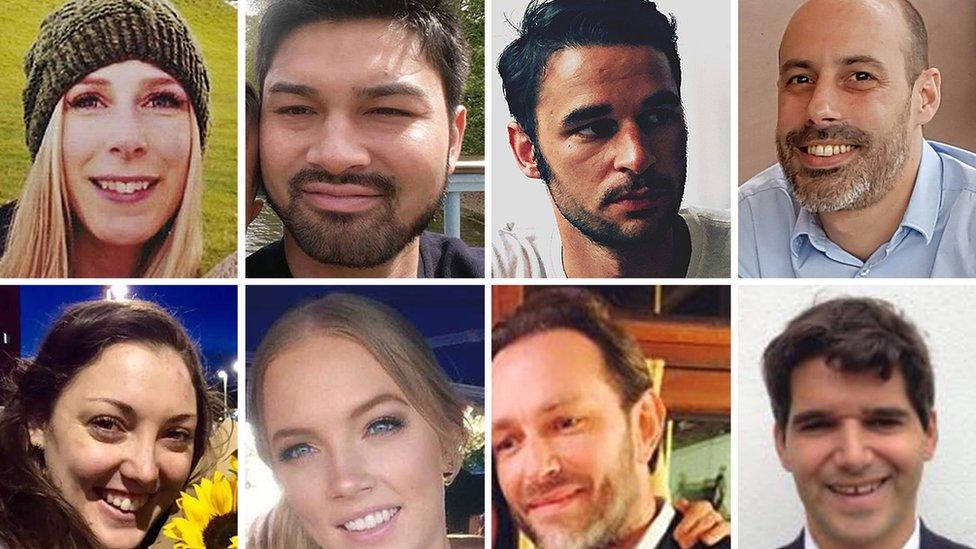
The victims of the attack, clockwise from top left - Chrissy Archibald, James McMullan, Alexandre Pigeard, Sebastien Belanger, Ignacio Echeverria, Xavier Thomas, Sara Zelenak, Kirsty Boden
There were "opportunities galore" to identify that the London Bridge extremists were plotting an attack, an inquest has heard.
Gareth Patterson, the lawyer representing several victims' families, said there was evidence the attackers had been in contact since January 2017.
Eight people died in the attack on 3 June 2017.
But investigating officer Acting Det Ch Insp Wayne Jolley denied there had been missed opportunities.
Mr Patterson told the hearing at the Old Bailey in London that "any reasonably competent investigation" had the chance to detect the planning that was going on between the three men.
It would have taken the trio a "significant period of time" for them to become close enough to trust each other with planning an attack, he said.
Khuram Butt, 27, Rachid Redouane, 30, and Youssef Zaghba, 22, left 48 people injured when they attacked passsers-by near London Bridge with a van and knives, before being themselves shot dead by armed police.
Xavier Thomas, 45, Christine Archibald, 30, Sara Zelenak, 21, Sebastien Belanger, 36, James McMullan, 32, Kirsty Boden, 28, Alexandre Pigeard, 26, and Ignacio Echeverria, 39, died in the attack, which lasted less than 10 minutes.
Six months after the attack, a major review of whether MI5 could have stopped it revealed that Butt, the ringleader at London Bridge, was under "active investigation" from mid-2015.
At the inquest, Mr Patterson said Butt had been associating with known extremists, including Anjem Choudary, and had told people of his desire to fight in Syria.
Mr Patterson challenged the Metropolitan Police's investigating officer, suggesting the repeated contact between the attackers was "crying out to be looked at".
The inquest heard that Zaghba had started going to Butt's gym in January 2017 and that the two men were in telephone contact after that time.
Zaghba also visited Butt's home and had been allowed to drive his car, the inquest heard.
In March, all three attackers were at the Ummah fitness centre in east London.
It was in the same month, Mr Patterson said, that Butt had possibly been trying to buy a gun.
There was then a barbecue at Butt's home in May, which Redouane attended, and those two men were in contact "again and again for months", Mr Patterson said.
The court heard that, the day after the barbecue, Redouane bought three identical knives.
"Any reasonably competent investigation should have been looking at Redouane at this stage, I would submit," Mr Patterson said.
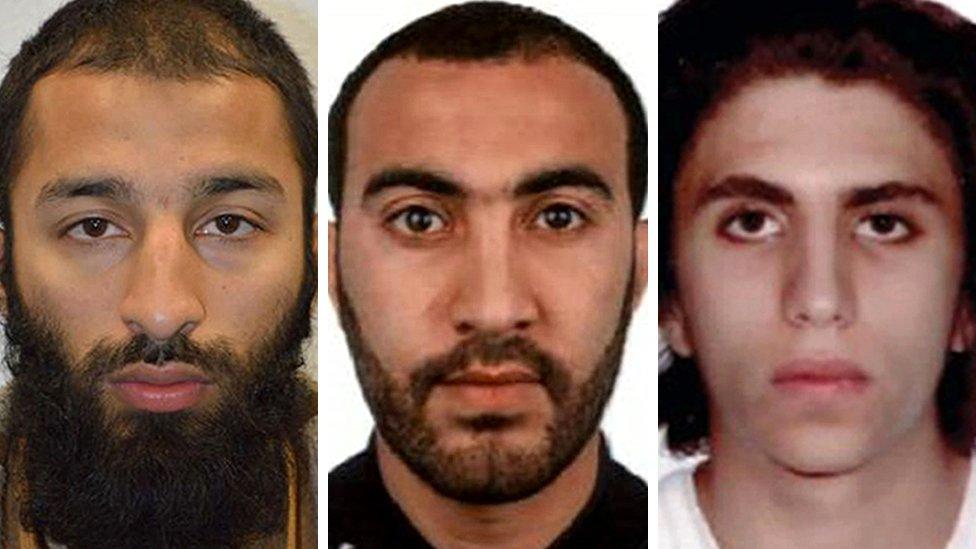
Khuram Butt, Rachid Redouane and Youssef Zaghba carried out the London Bridge attacks
Det Ch Insp Jolley said he did not agree that there had been missed opportunities to stop the men and said police would have been working with the intelligence they were given.
The court heard that the three men were extremely careful with how they communicated, and even when their phones and other devices were examined after the attack, there was no evidence of their planning.
Mr Patterson said that there was one occasion in May when all three men were at the gym "in the dead of night" and were speaking together in the street, but one of them employed a "classic anti-surveillance technique" of leaving his telephone on the ground while they walked away and talked.
"The attack planning was there to be detected," he suggested.
The court also heard that Zaghba had held extremist views since childhood.
He celebrated the 9/11 attacks and had the Islamic State group flags on his Facebook page, according to information from his mother.
Zaghba had also tried to flee abroad to fight for IS and had jihadist material on an SD memory card seized from him when he was stopped at an airport.
But Richard Horwell, the lawyer representing the Metropolitan Police at the inquest, asked: "In the months leading up the attack was there any evidence of any attack planning?"
Mr Jolley said: "Not that we uncovered, sir, no."
The inquests continue.
- Published29 May 2019
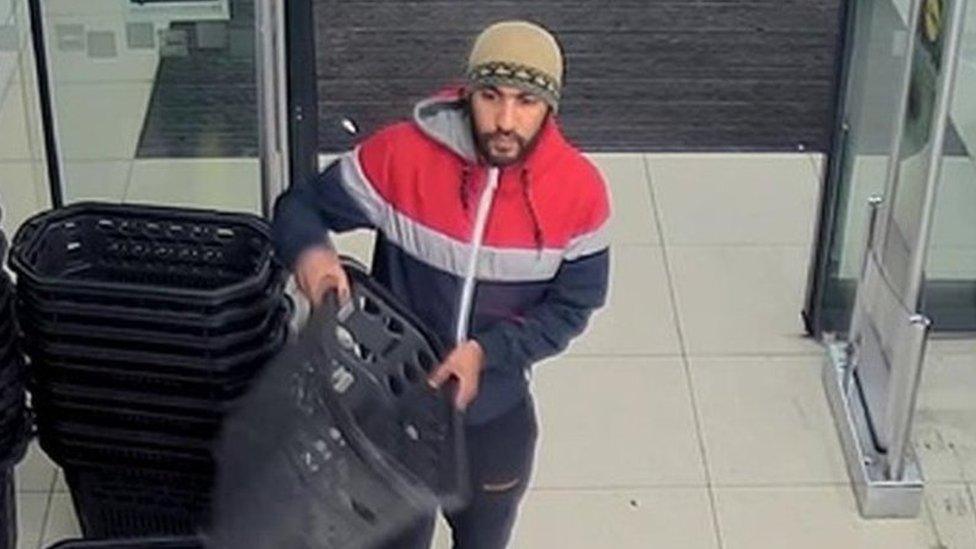
- Published28 May 2019
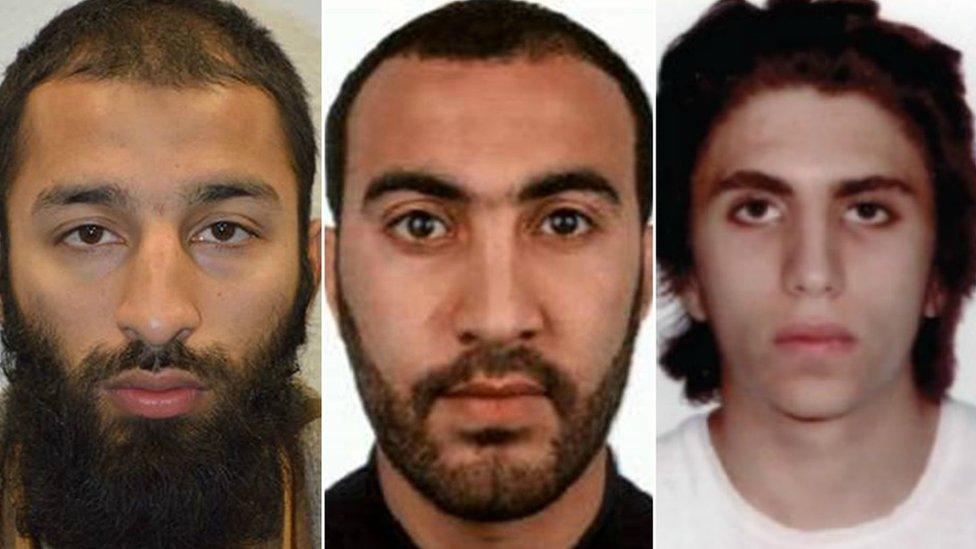
- Published22 May 2019
